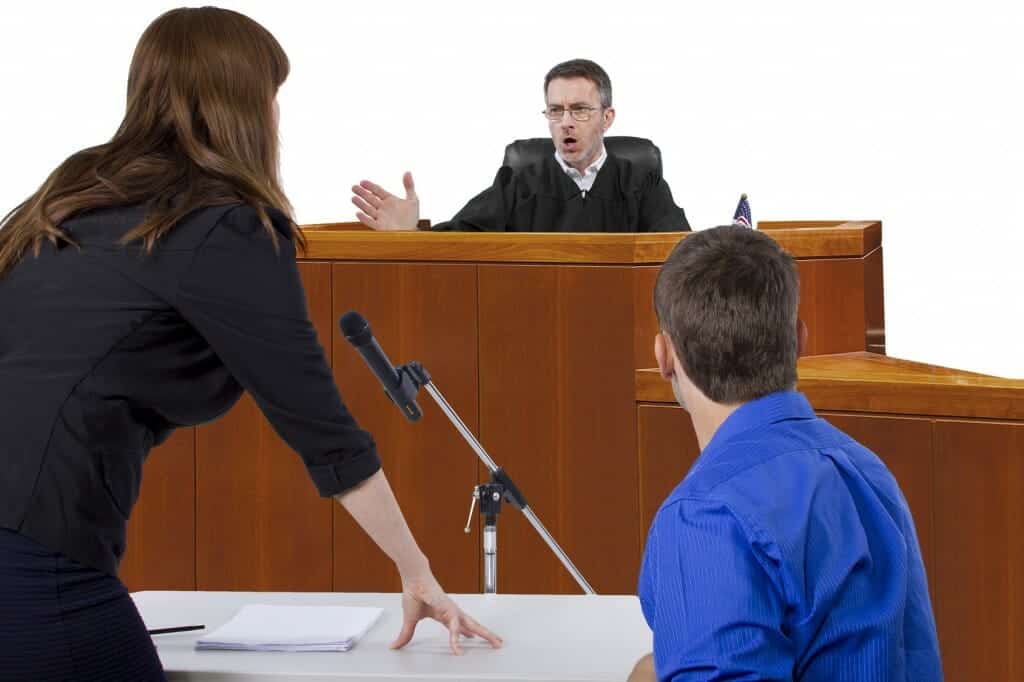If you’re fighting over your kids in your divorce there’s one thing you know for sure. You don’t want to lose your custody battle.
The problem is that the way many people go about “winning” their custody battle usually does more harm than good.
Their behavior often hurts their case more than it helps. And it almost always hurts their kids.
It’s not that divorcing parents intentionally want to hurt their children, of course. It’s just that much of what they think they need to do to “win” is actually counter-productive.
For example, many divorcing parents believe that they can win custody by showing that their spouse is a terrible parent. So they go on a mission to prove that everything their spouse does is wrong/bad/horrible.
Or they think that as long as their kids prefer to live with them rather than with their spouse, they’ll win. So they work on their kids, constantly trying to get their kids to “choose” to live with them rather than with their other parent.
Or they believe that once the judge sees that their parenting style is morally superior to their spouse’s parenting style, they will “win” their custody battle. So they parent according to what “looks right” rather than what is truly best for their kids.
Unfortunately, taking any of these approaches just to “win,” usually makes everyone lose.
(NOTE: In some states, notably Illinois and Colorado, the legislature has gotten rid of the word “custody” in divorce cases. Instead, those states use the term “parental responsibilities.” But the concepts are the same.)
What Does Pink Have to Do With It?
Consider what happened to one New Jersey father who tried to show that his ex-wife had abused her parental discretion by taking their 11 year-old daughter to a Pink concert.
The father believed that the concert choreography would be too suggestive, and the language too profane for his child. (In fact, Pink did drop a few “F bombs” during the concert.)
His daughter, however, was a huge Pink fan. She desperately wanted to go to the concert.
After researching Pink’s concerts online, the mother decided that they were age appropriate for her daughter. So the mother took her daughter to the concert.
The father then immediately hauled the mother back to court, thinking he could clearly claim the moral high ground and get custody of his daughter back.
Unfortunately for the father, the judge found that the mother’s decision to take her daughter to the Pink concert was not an example of bad parenting. The judge spoke privately with the daughter and took the mother’s reasoning into consideration when making his decision.
In fairness, the parents in that particular case were already divorced. The father was trying to regain custody, not get it in the first place.
Yet the legal standard that governs who should have custody of a child was the same. For better or worse, that standard has nothing to do with parenting styles or parenting judgments that don’t endanger children.
It’s Okay to Have Different Parenting Styles
Decades of social research have produced countless studies on all kinds of parenting issues. If those studies have shown anything at all it is that there is more than one acceptable way to raise children.
Judges are well-aware of that research. Because of that, most judges are reluctant to award custody to one parent or the other simply because one parent claims to have a “better” or more “moral” parenting style.
Obviously, if a parent does something that puts his/her child in physical or psychological danger, that’s different.
But a simple difference in parenting styles is generally not enough to persuade a judge to grant custody to one parent or the other.
Simply put, it’s not a judge’s job to tell you (or your spouse) how you should raise your kids. It’s not a judge’s job to monitor your family’s values. Even if the judge happens to share your values (which is never a sure thing), the decisions s/he makes must be based – not on subjective values – but on the law.
When it comes to questions of custody, the law in most states requires judges to consider what’s in the “best interest” of the children involved.
What’s in the “best interest” of your children?
Most parents assume that what THEY believe is “best” for their child, is exactly what’s in their child’s “best interest.” But that’s not how the “best interest” standard works.
The “best interest” of a child in the context of a divorce or custody case is a legal term. It has a very specific meaning … and that meaning doesn’t necessarily depend on (or even relate to!) what YOU think is in your child’s best interest.
Here’s why.
What you think is “best” for your child is a subjective, value judgment. (NOTE: What you think is “best” may be marvelous! It may be perfect. It may be exactly what your child needs. But your subjective ideas about what’s “best” may or may not correspond to what a judge believes is in your child’s “best interests.”)
What a judge determines is in your child’s “best interest,” on the other hand, is a legal decision. That decision is (hopefully) going to be based on a variety of very specific legal factors.
Those factors are set by the law of your state. In general, however, the factors that determine what’s in a child’s “best interest” MAY include (among other things):
“Best Interest” Factors
- A child’s needs;
- What a child wants, taking into account his/her age and maturity;
- A child’s adjustment to his/her home, school, and community;
- The mental and physical health of the child, his/her parents, his/her siblings, and anyone living with the child;
- The parents’ ability to cooperate (or not!) in making parenting decisions;
- How much each parent has participated in making decisions about the child in the past;
- The parents’ wishes;
- How far apart the parents live from each other;
- How much it costs and how long it takes to get back and forth between the parents’ homes;
- The parents’ ability to cooperate to get the child back and forth to where s/he needs to be;
- The child’s daily schedule;
- How much each parent fosters a good relationship between the child and his/her other parent;
- Any physical violence by the parent against the child;
- Any abuse of the child;
- Abuse of anyone else who lives with the child;
- Whether one parent is a sex offender;
- Anything else that may be relevant.
How to Lose Your Custody Battle
Looking at the factors the judge will use to determine what’s in your kids’ “best interest,” will give you some idea of what a judge MAY do, if s/he is pressed to make a custody decision in your divorce.
The challenge, of course, is that some factors may favor you, while others favor your spouse. The judge’s job is to weigh all the factors and make a decision about custody if you and your spouse can’t make that decision yourself.
Because you never know HOW the judge will weigh those factors, or what the judge will decide, it is ALWAYS better to try to work out custody issues directly with your spouse if you can. That keeps control of your family in your own hands.
If that’s not possible, and you can’t avoid a custody fight, here are 8 things to do (or to AVOID DOING!) if you don’t want to lose your custody battle.
DON’T DO THESE THINGS:
1. Don’t purposely alienate your child from your spouse or withhold parenting time.
Most judges believe that, absent abuse, it’s in a child’s best interest to have a relationship with both parents. That means that refusing to let your spouse see your child and filling your child’s head with ideas about how your spouse is bad/wrong/evil is a bad idea.
Instead of trying to keep your child away from your spouse, do your best to encourage your child to spend time with him/her. Document every occasion when your spouse doesn’t show up for his/her parenting time.
2. Don’t alienate the Guardian Ad Litem or Child Representative.
Courts appoint Guardians and Child Representatives to be their “eyes and ears.” Those divorce professionals will meet your kids, talk to them, and may interview your children’s teachers, babysitters, medical professionals and others as they see fit. The judge is relying on them to do that.
The judge is also relying on them to either make recommendations to the judge about what should happen with your kids or to advocate for what s/he thinks is in your kids’ best interest.
Guardians and Child Representatives are VERY important people in your custody proceedings. If you get on their bad side, you will usually have a MUCH harder time persuading the judge to rule in your favor.
3. Don’t Make Mountains Out of Molehills
Escalating every ordinary parenting disagreement into a major battle will make you seem uncooperative and unreasonable.
If you’re constantly running into court every time your spouse drops the kids off ten minutes late or makes a parenting decision you don’t agree with, the judge isn’t going to get irritated with your spouse. S/he is going to get irritated with you.
One of the factors that the court uses to determine what’s in your children’s “best interest” is how well you can get along with your soon-to-be-ex. If you’re dragging him/her into court every other day, the judge can easily see YOU as being the uncooperative parent.
4. Don’t falsely accuse your spouse of any kind of abuse.
Physical violence and any kind of abuse are serious issues. That’s true regardless of whether the abuse is directed against you or your children.
Judges take allegations of abuse very seriously. If they discover that one spouse has made false allegations of abuse against the other just to get leverage in a custody case, though, that behavior usually backfires.
Judges don’t like to get played for fools. They care about the kids in their courtroom. What’s more, one of their jobs is to assess the credibility of everyone who comes before them. If you claim that your spouse was abusive, and the judge discovers that your claim was untrue, you may very well lose the custody battle you’ve fought so hard to win.
5. Don’t make major decisions about your kids’ health or education without consulting with your spouse, unless the judge has specifically given you permission to do so.
The ability to cooperate with each other is one of the primary factors involved in making custody determinations. If you insist on making major decisions about your kids by yourself, without even talking to their other parent, you’re going to have a really hard time convincing a judge that you’re willing to cooperate with your spouse.
Unless your kids are involved in a medical emergency and you can’t reach their other parent you shouldn’t make major medical decisions for them by yourself. You shouldn’t enroll them in a private school without first talking to your spouse. In short, until a judge gives you the specific authority to make certain major decisions for your kids, you should always consult with your spouse first.
If, after you talk about an issue with your spouse, you don’t agree on what you should do, then you may need to ask the judge to decide the issue for you. (But remember #3. Asking the judge to decide what school your kids can go to is one thing. Asking the judge to decide what your spouse can feed the kids for lunch is another.)
DO THESE THINGS:
1. Take child custody evaluations seriously.
If the court orders you to undergo a custody evaluation, make sure you take the time to prepare for it in advance! Spend time with your attorney and/or divorce coach to go over what kinds of questions you will be asked. Think about your answers, so that when you’re asked the questions you’re not stumbling for words.
Ask your attorney for a run-down of what will matter the most to the evaluator. Find out as much as you can about your evaluator.
If you need to bring any documentation with you to the evaluation, make sure you know that and have it prepared. Do your best to be organized, and to make a good impression.
2. Follow court orders.
Court orders are exactly that. They are ORDERS. They are not suggestions.
Even if the judge has entered an order you don’t agree with, you are still bound to follow that order unless the judge changes it. If you don’t follow that order you can be held in contempt of court.
What’s more, violating court orders is NOT going to put you on the judge’s good side. When you’re trying to persuade the judge to grant custody to you, aggravating the judge by not following his/her orders makes zero sense.
3. Communicate with your spouse about the kids.
Unless your spouse is a danger to you or your kids, you MUST communicate with him/her about your kids! Even if you have the sole right to make certain decisions about your kids, most of the time, the judge will still require you to at least tell your spouse about anything major that’s going on with the kids.
Why? … because, like it or not, you and your ex will be your children’s parents forever. That’s why maintaining a civilized relationship with your ex is so important. It will make your life AND your kids’ lives so much easier, both during and after your divorce.
Of course, communicating with your spouse/ex can be rough sometimes – especially when emotions are running high! Luckily, “communicating” no longer requires face-to-face interaction. You can call, text, or email your spouse. You can use Our Family Wizard or one of the many parenting apps that have been specificially developed to help divorced and divorcing parents communicate about their kids. No matter what communication tool you use, though, the principal is the same. Keeping your ex in the loop about your kids is (generally!) best for everyone.
The Number One Rule in ANY Custody Battle
Going through a custody battle is never easy. It’s probably one of the most emotional divorce battles you’ll ever have. What’s worse, it can be devastating for your kids.
If there is ANY way you and your spouse can reach an agreement so that YOU (and not some judge) decides what happens to your kids in your hands – DO IT! Even if you don’t get 100% of what you want, there’s extreme value to staying out of court.
It’s better for you. It’s better for kids.
On the other hand, if you must go through a custody battle, then you need to be smart about it. Do what you should do. Avoid what you shouldn’t do.
Above all, put your kids first. Do the right thing. Always.
The number one rule in ANY custody battle is to take the high road.
Take the high road, even if your ex does not! As a matter of fact, take the high road especially if your ex does not! That’s the time when your kids need you to rise above the battle the most. That’s the time when the judge will see who you really are.
Most importantly, that’s the time when you define for yourself who you are.
As important as winning your custody battle may be, it won’t matter at all if it makes a mess of your kids and costs you your soul.
__________
This post was originally written in May, 2015 and updated in April, 2021.







I really like that you stated that it doesn’t matter if you can convince your child that they should live with you– the judge will only award custody to the parent that has the child’s best interests in mind. I also like that you stated that painting your ex-spouse as the bad guy will only run the risk of annoying the judge. I am currently in the middle of a divorce and will keep these thoughts in mind when I try to gain custody of my children.
Glad this article helped!
Hello Mrs Karen my name is Ryan but I’m writing to you for my girlfriend has no one else to even give us advice on her custody case her ex has money and hired a lawyer and when we went try to talk to someone or even see about a court appointed lawyer the state of Louisiana basic said no money no help now we both work and make plenty to provide for her 3 kids but to hire a lawyer is a stretch I guess I’m pleading to you as a last hope before she’s forced to repersent herself shes an awesome mom with substantial amount of room for the kids apose to the ex’s 2 bedroom apartment he already shares with his brother and he’s trying to take sole custody with supervised visits just out of spite she’s not fighting to keep them away from him we just don’t want to lose the right to have them. I guess in asking for some sort of advice or anything really we are just stuck in a corner looking forward to hopefully hearing from you thank you
I truly wish I could help you. It sounds like what your girlfriend needs is legal advice. I am not licensed to practice law in Louisiana. I can’t give you legal advice online or outside of the state of Illinois.
I’m sorry. If your girlfriend hasn’t done so already, she should try checking with any legal aid organizations and law school clinics in your area to see if they can work with her pro bono or on a sliding scale basis.